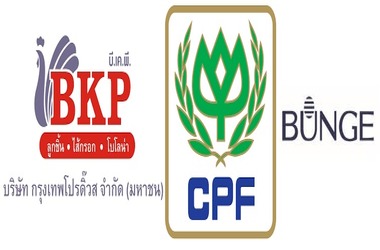
The primary objective of this agreement is to revolutionize the traceability of products, effectively mapping their journey from the field to the final customers in Asian markets, where BKP and CPF play a significant role in the production and distribution of feed and food products.
Driving Transparency and Sustainability in the Brazilian Soy Value Chain
Bunge’s ongoing monitoring efforts, headquartered in St. Louis, Missouri, encompass more than 16,000 farms, spanning up to 20 million hectares in South America. These endeavors heavily rely on cutting-edge satellite technology, capable of pinpointing changes in land use and tracking soybean planting across each monitored property.
In Brazil, Bunge has already implemented monitoring across its direct supply chain in regions susceptible to deforestation, and it has set a target to fully cover the indirect supply chain by 2025. Notably, more than 97% of the soy volume procured by Bunge has been verified as free from deforestation and conversion, signifying substantial progress towards the company’s overarching goal of achieving a deforestation-free value chain.
Rossano de Angelis Jr., Vice President of Agribusiness for South America at Bunge, emphasized the company’s dedication to becoming the preferred sustainable solutions partner for producers and customers. He added, “The partnership with BKP reflects our business vision that leverages technology as an important tool. Over the past few years, we have built a robust social and environmental verification system that includes advanced traceability and monitoring of our suppliers. We believe that, together with our customers, we will build sustainable supply chains with an additional layer of reliability guaranteed by blockchain.”
The collaboration between Bunge and BKP, both influential global players, holds the potential to significantly enhance transparency in the Brazilian soy value chain. This, in turn, is expected to bolster the confidence of end consumers around the world in soy-derived products, underscoring the global impact of their partnership.
The memorandum of understanding also underscores the commitment of both companies to explore future collaborations on various services. One prominent aspect is the pursuit of further integration among systems to enable real-time data transfer. Additionally, the parties are keen on measuring the carbon footprint of volumes traded with BKP and enhancing the digital traceability solution to align with sustainability certification standards. These standards include the Round Table on Responsible Soy (RTRS) and the International Sustainability & Carbon Certification (ISCC), reflecting a shared commitment to ensuring the sustainability and environmental responsibility of their supply chains.
Paisarn Kruawongvanich, CEO of BKP, highlighted the pivotal role of blockchain technology in enhancing traceability and transparency within the agro-industry and the company’s food supply chain. He emphasized that blockchain ensures transparency, product quality, and safety for customers, ultimately aligning with BKP’s commitment to achieving a net-zero supply chain by 2050.
Kruawongvanich stressed the significance of tracing raw materials back to their source, particularly in the context of soy production, to ensure that materials are not sourced from encroachment areas or regions with deforestation. This initiative aims to uphold environmental responsibility and sustainable practices within the supply chain, benefitting both the industry and consumers alike.